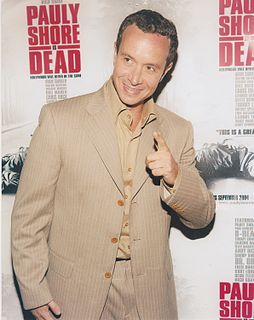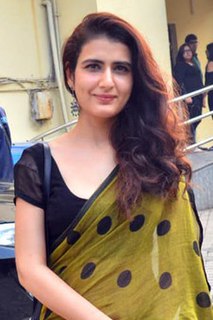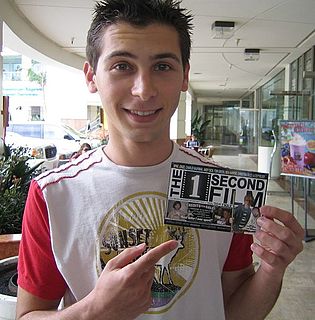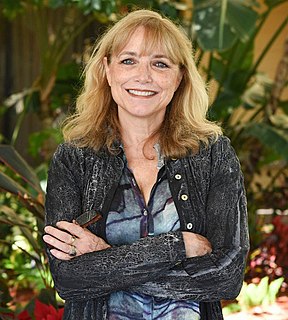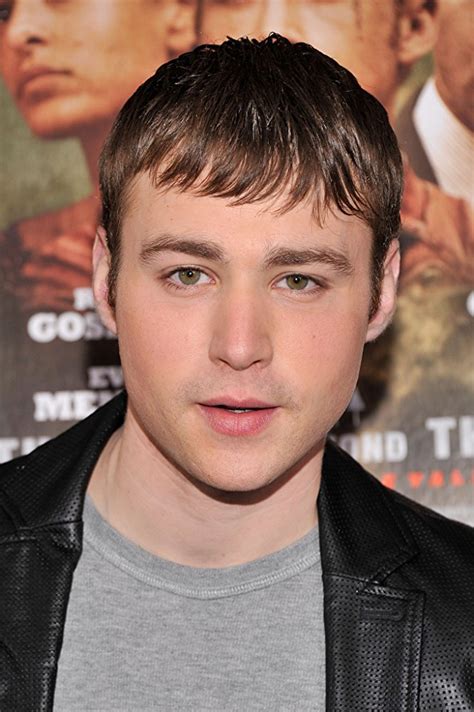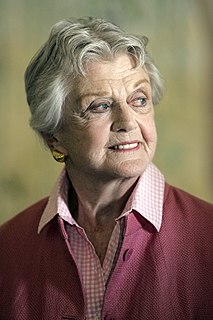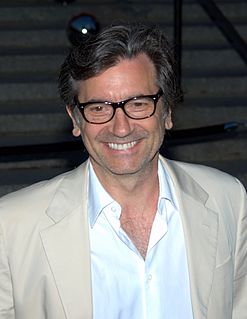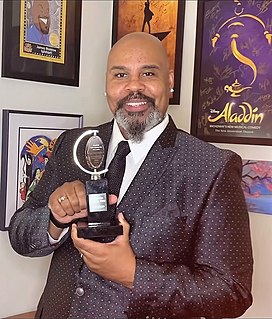A Quote by Pauly Shore
I miss that process of getting the script and reading it and working on it. Every actor has their own way of memorizing their lines, and the whole process of starting to work with the other actors and the director, and doing rehearsals, and going to the location, and going through wardrobe.
Related Quotes
The recording process was basically me meeting with different writers, going into their studio, starting a song and just hanging out and chatting and getting to know how they work. Everybody has a different writing process so there was a lot of getting to know people, which can be fun and stressful at the same time.
I'm not ambitious when it comes to my acting career. I'm not breaking down my agency's doors or sending out headshots. Even when I'm offered work, I always want small parts. When it comes to things that other people have written, I just don't know what I'm doing. I'm terrible at memorizing a script and reading lines. I get confused and I don't understand and it just looks fake to me. It's more difficult for me to be creative that way.
My story about becoming an actor is a completely non-romantic one. I became an actor because my parents were actors, and it seemed like a very... I knew I was going to act all my life, but I didn't know that I was going to be a professional actor. I thought I was just going to work as an actor every now and then.
Dialogue is really aimed at going into the whole thought process and changing the way the thought process occurs collectively. We haven't really paid much attention to thought as a process. We have engaged in thoughts, put we have only paid attention to the content, not to the process. Why does thought require attention? Everything requires attention, really. If we ran machines without paying attention to them, they would break down. Our thought, too, is a process, and it requires attention, otherwise its going to go wrong.
I remembered getting the script for the auditions [of Aladdin], I had asked someone there if improvs were allowed, and he said everyone is sticking to the script. I said to myself that they are either going to love me or hate me. I was crossing out lines and throwing in my own lines. I went into the room and started doing things. They were like, "This boy is nuts! We should keep him." That's how it all came about.
It is one of the few elements in the process that a director really, really can't control: an actor's performance. If you have a director that understands that, it's comforting to an actor. You're starting the relationship more as a collaborator, rather than as an employee or some kind of a soldier trying to execute something you don't organically feel.
In the old days when I first was coming up, you would turn up on set in the morning with your coffee, script, and hangover and you would figure out what you were going to do with the day and how you were going to play the scenes. You would rehearse and then invite the crew in to watch the actors go through the scenes. The actors would go away to makeup and costume and the director and the DP would work out how they were going to cover what the actors had just done.
